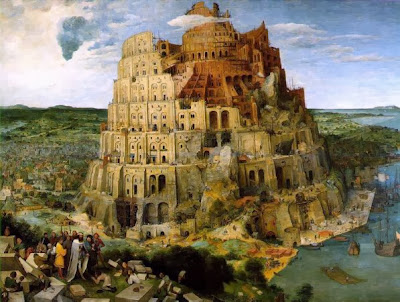Chinese are building a financial infrastructure that would free the world from dependency on the dollar
Two events last week were a reminder, as if any were still needed.
The great issue in Washington that divides Republican and Democrats is
whether we can go on running deficits and piling up the national debt without
some day reaching a point of reckoning.
Democrats adhere to the Keynesian/Paul Krugman school, which says that
“deficits don’t matter,” “we owe it to ourselves,” and that printing money is
the best and fairest way to stimulate the economy. (Actually, this viewpoint is
adopted by whichever party happens to be in power. The Republicans argued the
same thing when they controlled the government during the Bush and Reagan
years.)
The Republicans and other green-eyeshade types argue that out-of-control
deficit spending can’t go on. It’s like a household budget. Any country that
runs up a negative account balance will eventually hit bankruptcy. If it tries
to inflate its way out of debt, people will start to doubt the value of money and
the currency will collapse. Savings will be wiped out and the nation will
become penurious.
So far the neo-Keynesians seem to be winning. Federal Reserve Chairman Ben
Bernanke has been pursuing his policy of “quantitative easing” (which just
means printing more dollars) for five years without producing any negative
consequences. Inflation has remained low and the dollar has actually
strengthened against some currencies, particularly the Euro as European
countries sink into their own financial crises. True, we have now run up a
national debt of approximately 100 percent of GDP, which is exactly where
Greece was when things started to fall apart. But as everyone observes, no one
really thinks the United States is as vulnerable as a little country 11 million
people that lives on olives and tourism.
Then there is the example of Japan. The Japanese have had a national debt
of 200 percent of GDP for nearly a decade. True, their economy has been in the
doldrums for almost two decades and no one talks about the Japanese overtaking
the American economy anymore. But once again the Japanese experience seems to
confirm that “deficits don’t matter.” You can run up a huge national debt
without suffering any immediate consequences.
Two things happened in London last week, however, that indicate there might
be a flaw to this argument after all. There won’t be any consequences next week
or the week after, but in the long run they may point to the place where
America’s house of cards — or paper dollars — could eventually collapse. As
Kenneth Rogoff, co-author ofThis Time It’s Different, says, “Any
country that sits with a historically large debt for too long is taking a
chance that some out-of-the-box event will shake up markets and raise interest
rates to the point where funding becomes very painful. Wars and unexpected
catastrophes do happen and the historical transformations that follow can
occur.”
So here’s what happened in London:
· The British, faced with
declining natural gas production in the North Sea and reluctant to embrace
fracking, are facing power blackouts this winter. So they have decided to go
with nuclear. They have quickly discovered, however, that America no longer has
a nuclear industry and France, the one European country that has embraced
nuclear, is bogged down in bureaucracy and political opposition. So they have
turned to the country where nuclear construction and technology are making
rapid progress — China. Last week Chancellor of the Exchequer George Osborne
announced he would allow Chinese nuclear companies to invest in British reactor
projects and eventually take ownership of them.
· Almost simultaneously, the
Exchequer announced that Britain will allow Chinese banks to set up branches
for wholesale banking in London. The decision is part of an effort to steal a
mark on Frankfurt and Paris to become the hub of trading in the Yuan, the
Chinese currency, in Europe. Having Chinese banks operating in London will
allow direct trading between the Yuan and the British pound, instead of going
by way of the dollar as things are done now.














